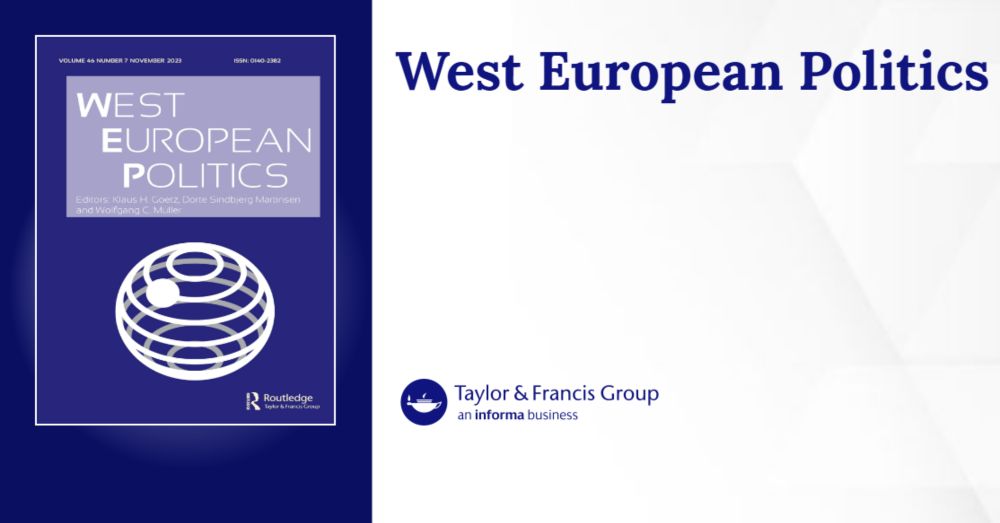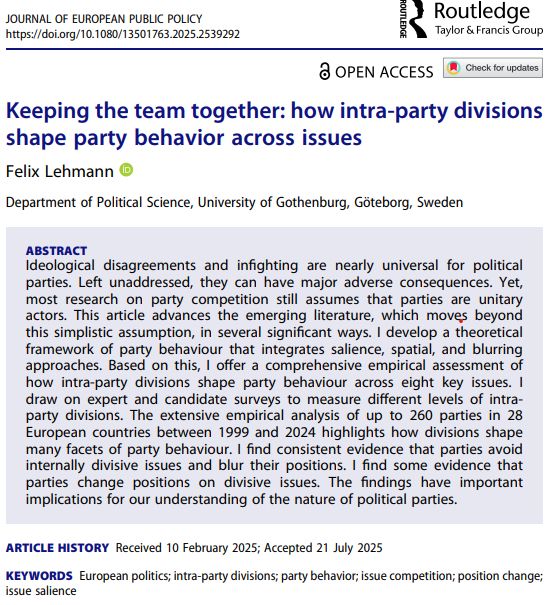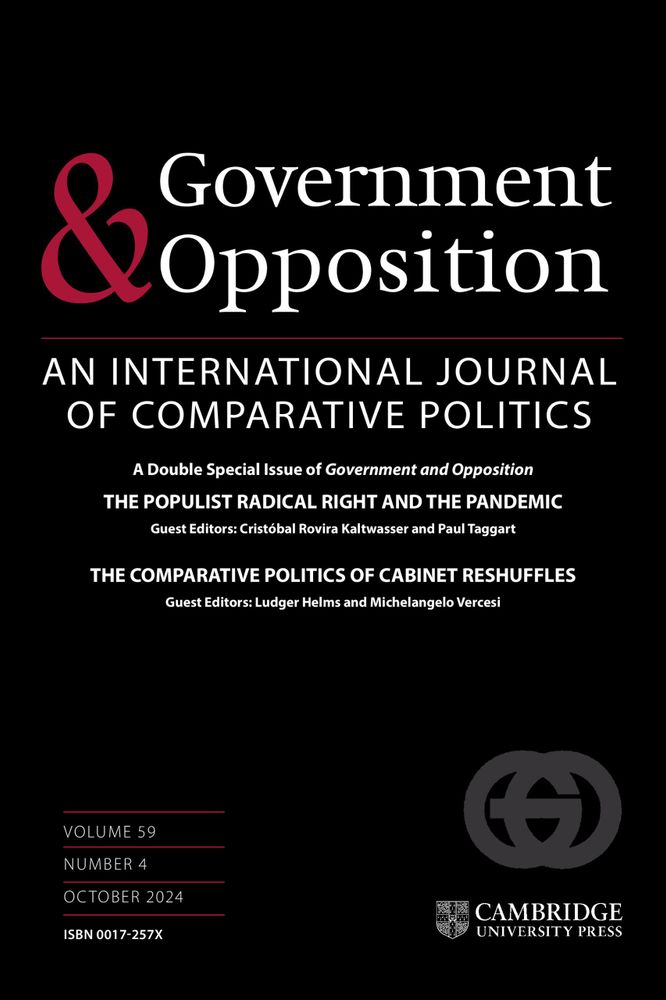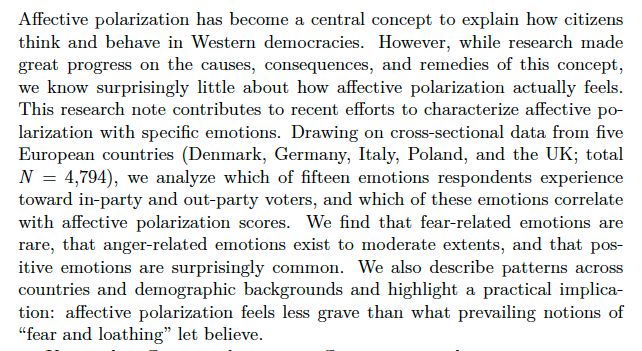Felix Lehmann
@felixlehmann.bsky.social
3.1K followers
700 following
44 posts
PhD candidate in political science @ University of Gothenburg | party competition | intra-party politics | European integration | immigration | radical right
Posts
Media
Videos
Starter Packs
Pinned
Reposted by Felix Lehmann
Reposted by Felix Lehmann
Reposted by Felix Lehmann
Reposted by Felix Lehmann
Reposted by Felix Lehmann
Reposted by Felix Lehmann
Reposted by Felix Lehmann
Reposted by Felix Lehmann
Reposted by Felix Lehmann
Felix Lehmann
@felixlehmann.bsky.social
· Aug 27
Reposted by Felix Lehmann
Reposted by Felix Lehmann
Reposted by Felix Lehmann
Reposted by Felix Lehmann
Reposted by Felix Lehmann
EPSS
@epssnet.bsky.social
· Aug 7
Reposted by Felix Lehmann
Gefjon Off
@gefjonoff.bsky.social
· Aug 7

Young men, gendered labour market competition, and opposition to gender equality policy across 27 EU countries
Recent studies have shown an increasing divide in political values between young men and women, particularly regarding gender equality attitudes. In this study it is argued that this is due in part...
www.tandfonline.com
Reposted by Felix Lehmann
Reposted by Felix Lehmann




















